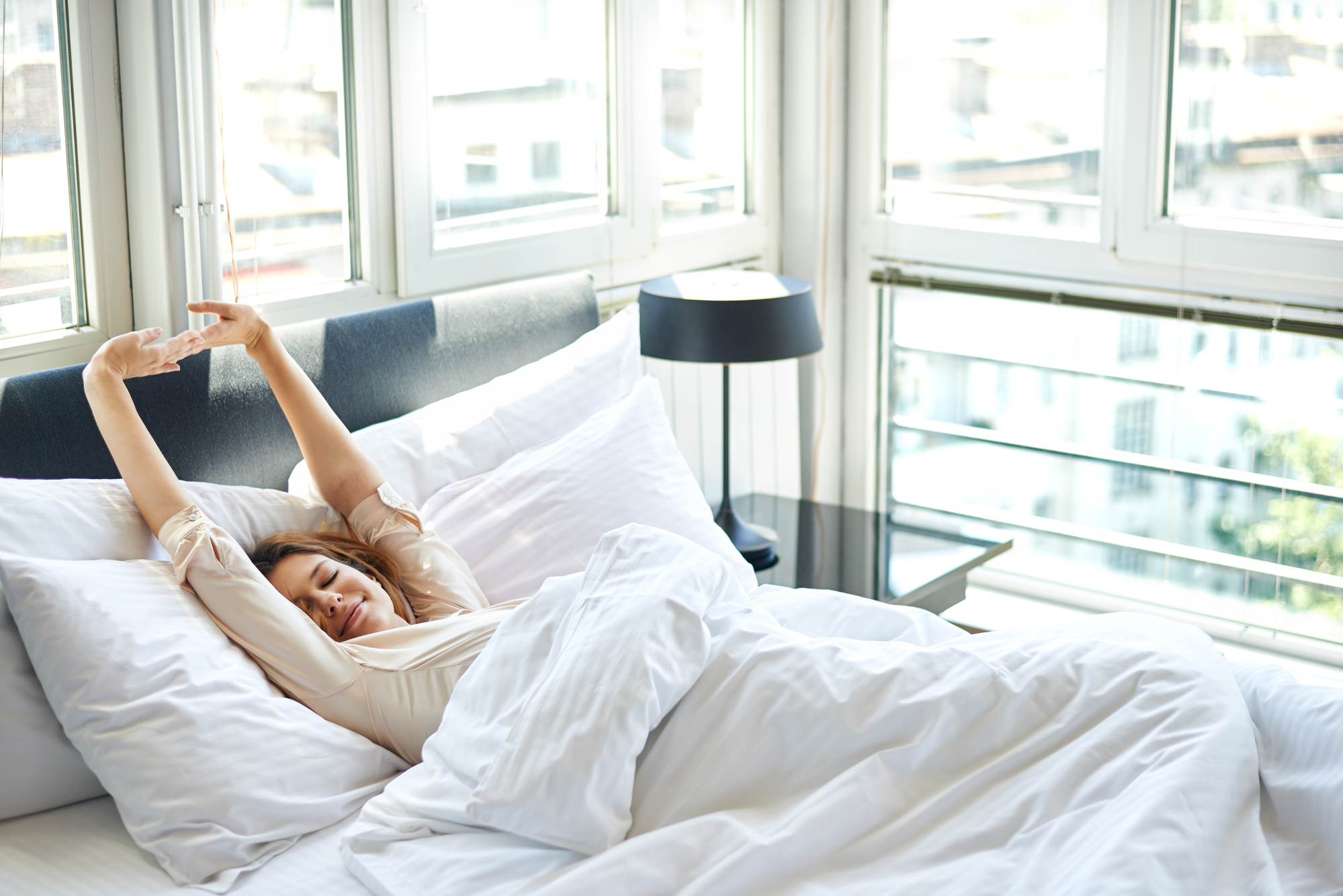
Sleep deprivation is a very common issue so many people in our world are struggling with, and the list of reasons is long. For some people, sleep is a struggle because of stress that goes unmanaged, for others it’s the blue light that emits from their devices. For others, too much caffeine late in the day is the culprit. In our society today, most people try to fight their lack of sleep with medication, and while this can do the job quickly, it has untold consequences on our health including dependency, coordination difficulties, memory loss and slurred speech. Sleeping pills are not a long-term solution to being unable to sleep, they can fix a problem temporarily, but we shouldn’t make taking them an everyday thing. We’re all about natural fixes and remedies, and there are plenty of things we can do to sleep better without having to reach for a bottle of pills. According to Muse Sleep, a company specializing in quality mattresses and sleepwear, “some of the most powerful measures to improve sleep aren’t about what we put in our bodies, they are about how we work our environments to make them more conducive to sleep. This includes the room temperature, the bedding and the mattresses we sleep on.” In this article, how we can start to sleep better, by taking a more natural approach.
Essential Oils
Some of the best solutions to sleep lie in natural, herbal remedies and essential oils. If we want us and even our families to start getting better quality sleep, we can incorporate them into our daily lives. Some of the best essential oils to combat sleeplessness include;
- Lavender Oil
- Valerian Oil
- Clary Sage
- Sweet Marjoram
- Roman Chamomile
Very often we can buy a pillow spray that is a combination of some or all of these herbs. A few spritzes before bed can help us relax and wind down so that falling asleep becomes easier and not something elusive.
Stay Away From Stress Triggers
Stress is a huge factor in the sleep deprivation issue we have in our society, especially experiencing stress close to bedtime. We do this by reading work emails before bed, checking bank accounts or even watching the news right before we get into bed. One of the things that impact our ability to fall asleep is that we can’t relax, and what’s less relaxing than worrying about stuff or thinking about work? Before we sleep, we should be prioritizing relaxation through meditation or choosing entertainment that promotes calmness. Anything else can be very detrimental to our sleeping habits.
Make Your Bedroom Comfortable
One of the best ways to sleep better without medication is to make your bedroom more enticing to rest and sleep in. You can start by checking your old mattress. How old is it? If you can’t remember, and your mattress shows signs of wear and tear, then you need to get a new one. In this way, you prevent a sagging mattress that can cause back pain and sleep problems.
Another way to make your bedroom more comfortable for sleep is using good pillows such as a buckwheat pillow. With a good pillow, your head, neck, and shoulders get the right amount of support they need to prevent pressure while you’re sleeping. It’s also important to replace old pillows that lose their density and structure for health and safety purposes because they may harbor microorganisms that cannot be removed with washing and drying.
Of course, you also need to redesign your bedroom. You may want to apply a new wall paint that’s calming to the eyes such as blue, green, and neutrals to help improve the ambiance for sleep. You can hang a photo of nature, such as a view overlooking beach or a mountain top view that your eyes can focus on to divert stress from your mind during bedtime.
Prepare For Bed
We have routines for our mornings, our work days and how we run our families, so why wouldn’t we want to have a routine for our sleep as well? We need to have a routine that helps us calm down, wind down and get ready to fall asleep. If we were to just fall into bed without really preparing for it, it’s hard for us to signal to our bodies that it’s time to get ready to rest. According to the National Sleep Foundation, “with regular daily activities, our various body systems are able to prepare for and anticipate events. We naturally become more alert closer to our wake-up time. Our digestive systems become activated in advance of regular meal times in order to more efficiently process food. We start to relax and become sleepy prior to bedtime. It turns out that these regular daily events serve to anchor our underlying daily rhythms.” Preparing for bed can include many things, from drinking a tea to relax, turning off the lights and only leaving a night light on. You can also use this time to meditate so that you can let the stress of the day melt away and clear your mind. All of these things are incredibly effective in helping you sleep, and in also reducing the challenge of falling asleep because your body starts to anticipate it.
Getting a good night’s sleep shouldn’t be a luxury to us, it should be essential because it’s key to every other function in our lives including our eating habits, our effectiveness in all our roles in our families and lives, and our general wellbeing. Without sleep, we literally can’t function properly and we increase our chances of health risks. The last thing we want to do is be reliant on artificial sleeping aids like pills. If we don’t learn to fix the root causes of why we struggle to sleep, it will be a never ending, unhealthy cycle that will continue to get worse. The answer lies in taking the natural approach. It won’t happen instantly, but it will pay off.



